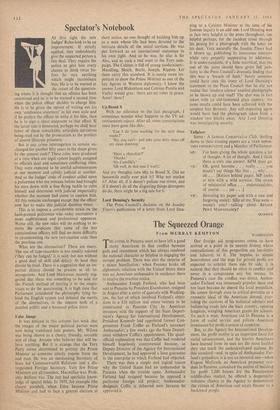Spectator's Notebook
But is our crime interrogation to remain un- changed for another fifty years in the shape given by the present code? These rules were produced at a time when our legal system happily assigned to officials dual and sometimes conflicting roles. They were expected to be zestful administrators at one moment and calmly judicial at another. And so the Judges' code of conduct called upon a policeman who ten minutes before had brought his man down with a fine flying tackle to calm himself and determine with judicial impartiality whether the moment had come to caution him. All this remains unchanged except that the officer now has to make this judicial decision twice.
This is to impose a considerable strain on the hard-pressed policeman who today encounters a more sophisticated and professional opponent. Worse still, the new rules will do nothing to re- move the suspicion that some of the less conscientious officers will find no.more difficulty in circumventing the new two-caution code than the previous one.
What are the alternatives? There are many. The use of tape-recorders is too readily rejected Obey can be fudged,' it is said; but not without a good deal of skill and delay). At least they should be tried. There is a suggestion that an im- partial citizen should be present at all in- terrogations. And Lord Shawcross recently sug- gested that there was something to be said for the French method of leaving it to the magis- trates to do the questioning. It is high time that Parliament considered the philosophy lying be- hind the English system and debated the merits of the alternatives, in the interest both of a puzzled public and a harassed police force.






































 Previous page
Previous page